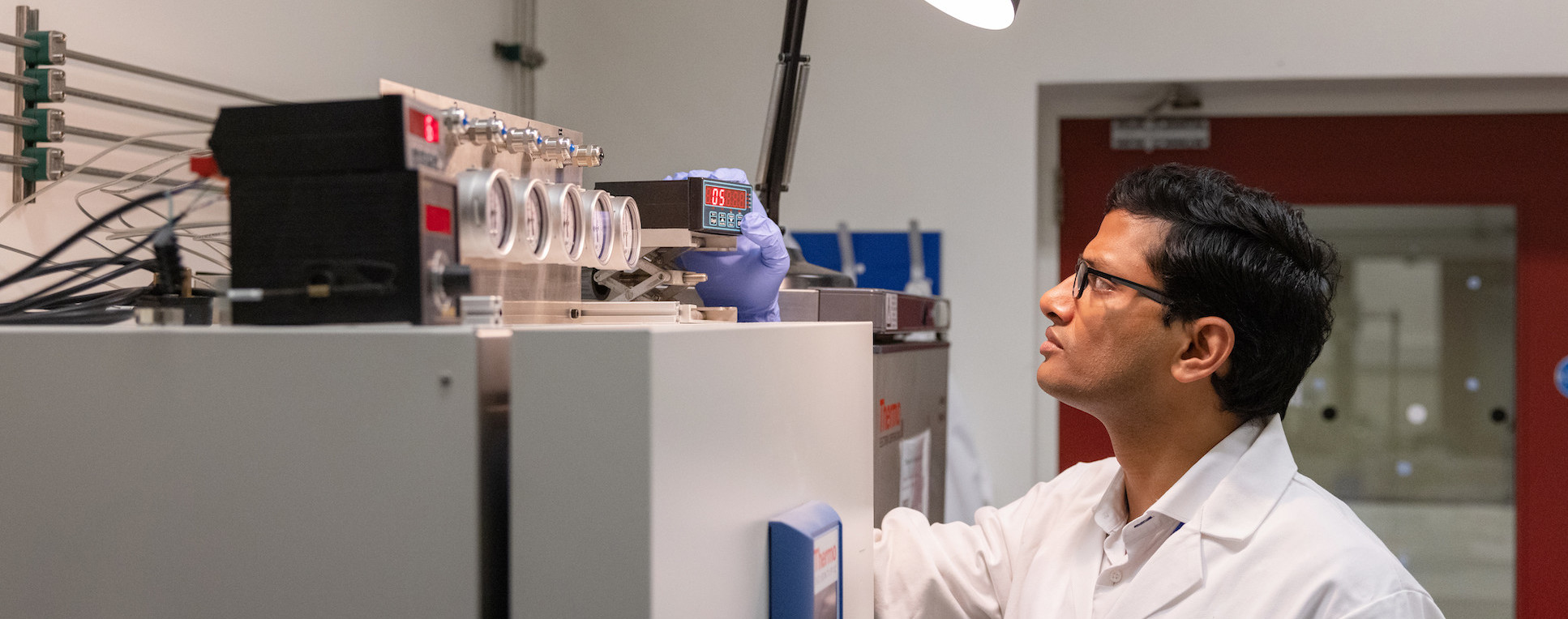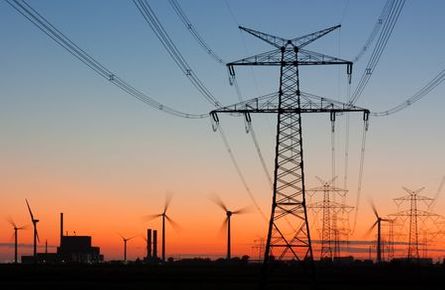
Imperial College London is one of the world's leading enery research institutions. Energy Futures Lab, as a part of the college, promotes and facilitates multidisciplinary, cross-faculty collaborations to tackle the broad range of energy challenges that the world faces.
The wide range of energy research being done at Imperial College London is not confined to one discipline or department. There is work being done in almost every part of the college and through many collaborations between different faculties. Energy Futures Lab is dedicated to supporting these researchers and helping them work together and make the best of the myriad of opportunities open to them.
Alongside our research networks that are designed to help build collaborations we have our six broad research themes which are outlined below.
Research Themes
- Energy Infrastructure
- Low Carbon Cities and Transport
- Materials for Energy
- Policy and Innovation
- Sustainable Fuels
- Sustainable Power
From physical networks of pipelines and power cables to data-driven models of assets and plants, energy infrastructure provides the backbone of our energy systems. These systems are being transformed in response to the Net Zero imperative, geopolitical threats, and extreme weather events driven by our changing climate, creating new challenges for engineers and scientists. Our Energy Infrastructure theme encompasses a wide range of research in this field, a core area of strength for Imperial’s energy community.
Our teams are playing a central role in the design of efficient, affordable and resilient delivery and storage systems for new fuels, energy vectors, and captured greenhouse gases; in the integration of new forms of power generation onto electricity grids and the development of smart grids; and in the protection of critical infrastructure from security threats. Imperial-led innovation is helping to ensure the energy transition can be achieved with minimal disruption and at the lowest possible cost.
Taken together, transport and the built environment account for over a third of a global carbon dioxide emissions. Addressing these, and related problems such as air pollution, requires research and innovation across a diverse range of disciplines, from chemical engineering and materials science to civil and environmental engineering. Crucially, it also requires a deep understanding of human behaviour and how consumer choice is influenced by economic cues, social pressures, technology and other factors.
Our Low-Carbon Cities and Transport theme encompasses a wide range of important work in these fields and others. From modelling transport demand to the development of lighter, more energy-dense batteries for electric vehicles, Imperial researchers are at the forefront of the drive for a more sustainable transport system. Our researchers are also helping to reduce the environmental footprint of buildings, leading ground-breaking work in advanced building materials, low-carbon heating, demand-side management and energy efficiency.
Materials science and engineering provide the essential building blocks of the transition to a zero-pollution economy, enabling us to design and model new technologies, products and processes and improve existing technologies to minimise their impact on the natural world or reduce their running costs. Our Materials for Energy theme reflects the importance of materials research in underpinning work across a broad range of energy topics and the centrality of Imperial’s materials community in our work.
The theme also reflects our emphasis on sustainability. Realising a Net-Zero economy will require a substantial increase in the mining and processing of critical materials, from the lithium and cobalt used in electric vehicles to the tellurium in photovoltaic solar panels. It is vital that these materials are sourced and used in a responsible manner or replaced with novel materials that can provide effective, sustainable and economically viable alternatives.
Science and engineering alone cannot solve the climate crisis or ensure energy security. New technologies and services count for little without policy and regulatory frameworks that support their diffusion, promote investment, manage energy demand and protect both consumers and the natural world. Our Policy and Innovation theme reflects the need to reshape our institutions and governance systems and design new policy frameworks and strategies to unlock the full potential of the energy transition.
Working in collaboration with social scientists, economists and lawyers across the UK and around the world, Imperial’s policy experts draw on our world-leading science and engineering expertise to produce multidisciplinary research that identifies solutions to complex policy problems. Our researchers produce rigorous analysis of the economic, social and environmental implications of policy and market interventions and investment options, helping to lay the groundwork for change.
The development of sustainable fuels is critical to the long-term future of many hard-to-decarbonise sectors, notably the aviation, maritime and haulage industries, each a growing source of greenhouse gas emissions globally. While not a replacement for deep emissions reductions, some industries, like the steel and cement industries, will also require the use of carbon capture technologies, coupled with storage or utilisation options (CCUS), to decarbonise in line with climate targets.
Our Sustainable Fuels theme covers a wide range of work in this area from the development of biofuels and hydrogen technologies to world-leading CCUS research and education. The College is home to the largest community of CCUS researchers in the UK and its carbon capture pilot plant, stretching over four floors at the heart of the Department of Chemical Engineering, is the only facility in the world where students can learn to operate a plant built to the highest industrial standards.
A reliable and affordable supply of low-carbon electricity is critical to the decarbonisation of economies around the world. The electrification of heating, transport and industry, until now major sources of greenhouse gas emissions, will drive increasing demand for clean power in the decades to come. In the UK and in a growing number of other countries, low-carbon energy sources like wind, solar and nuclear already provide a significant share of electricity generation, but the imperative remains to improve performance and reduce costs.
New technologies will also be needed to ensure the stability of power systems. Imperial College London has a rich portfolio of basic and applied research in sustainable power ranging from wind and solar energy to marine, bioenergy and fuel cell technologies. Through our Sustainable Power theme, we seek to drive innovation in the development of these technologies, and, by collaborating with industrial partners, demonstrate their effectiveness and scalability.


